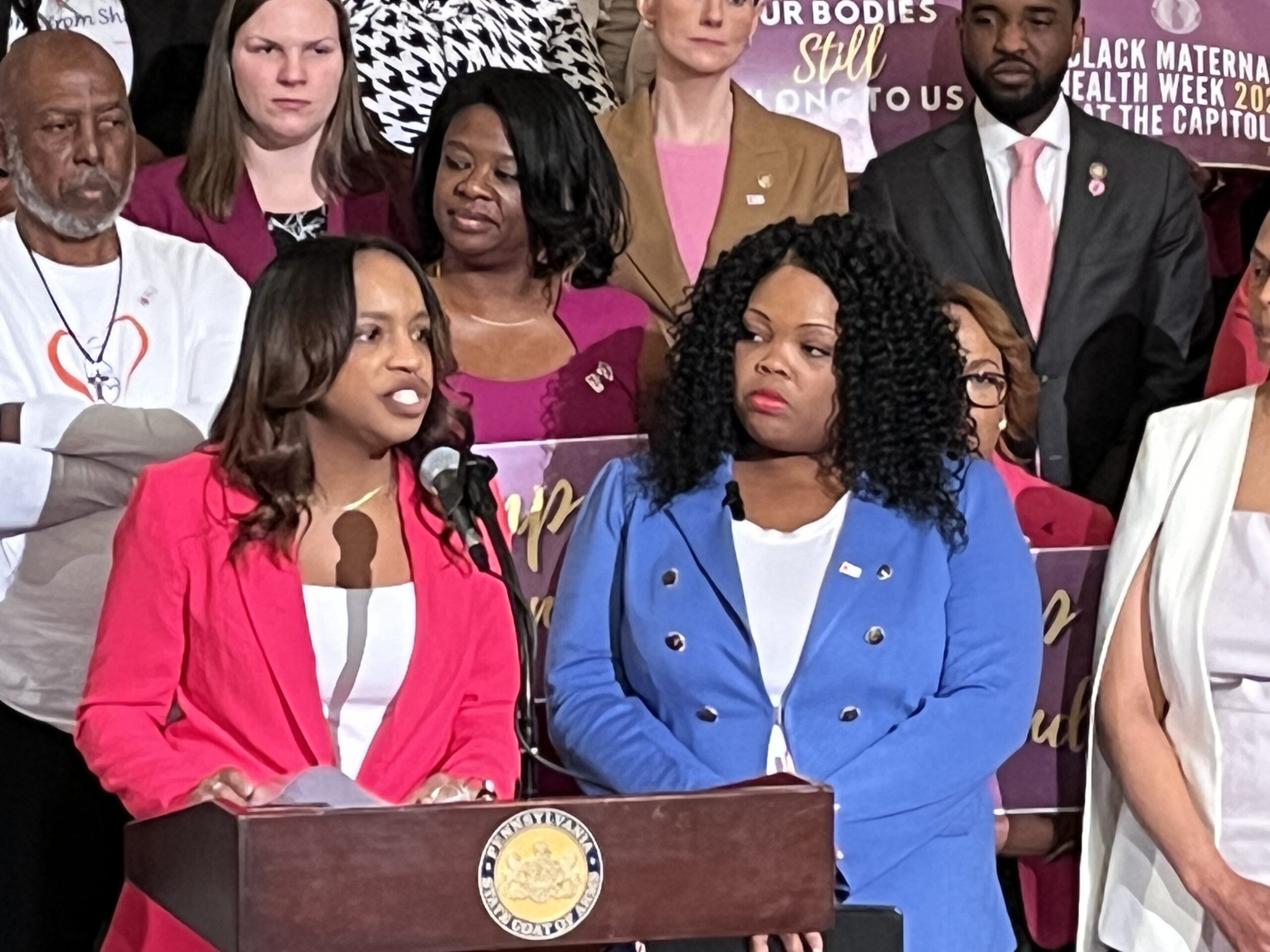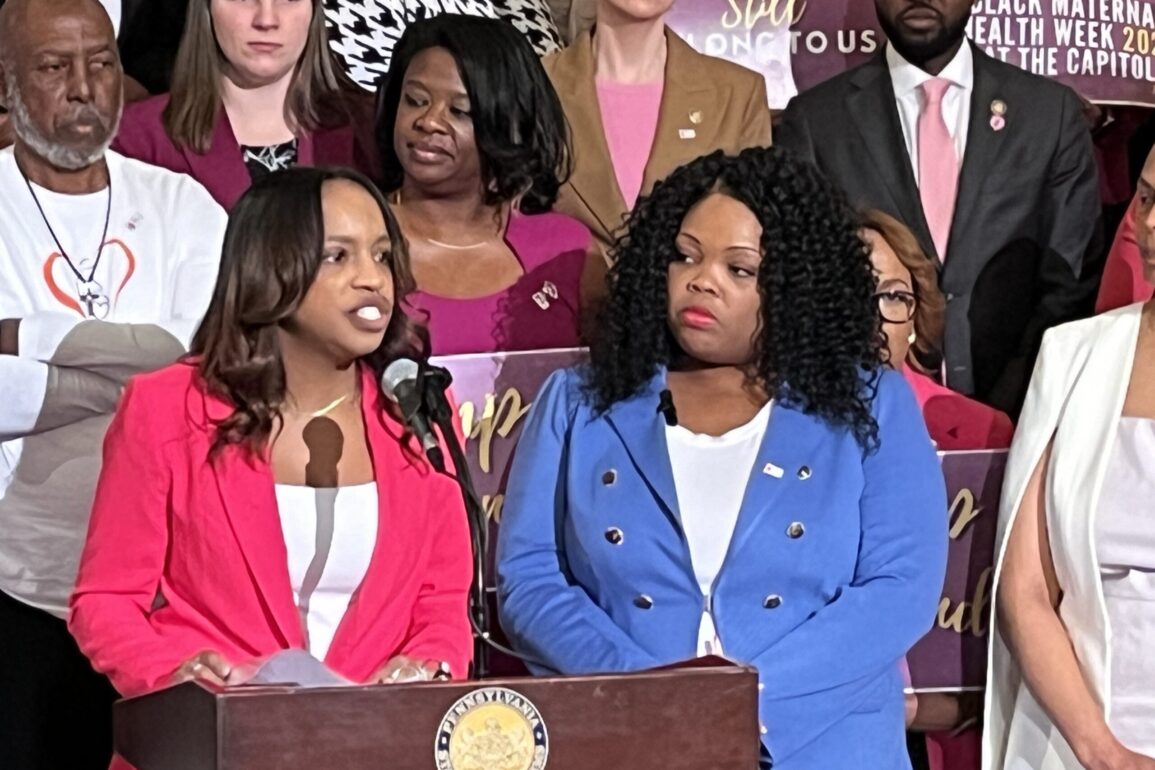
Edward Gilmore said his daughter LaShana did everything right during her pregnancy with her second child in 2019.
“I saw her the day before. She was a fitness guru like me,” Edward Gilmore said, adding that LaShana Gilmore had good insurance and had been conscientious about her health and keeping her medical appointments while she was pregnant.
But LaShana, 34, died on the operating table during a caesarian section at Lankenau Medical Center just outside Philadelphia. Her death, Edward Gilmore said, is a heartbreaking example of the maternal mortality that affects Black women at two to three times the rate of white women.
Gilmore spoke about his daughter Tuesday at a rally to mark Black Maternal Health Week in the Pennsylvania Capitol.
Members of the Pennsylvania Black Maternal Health Caucus detailed the issues Black women and birth givers face during pregnancy that puts their lives disproportionately at risk. They also promoted the “PA Momnibus” legislative package focused on targeted investments and improvements in maternal health care in the commonwealth.
“We have a serious, serious crisis in access going on. We have a maternal health care desert in so many spaces in our commonwealth” said State Rep. Gina H. Curry (D-Delaware), co-chairperson of the Black Maternal Health Caucus. “Even though some places have an epicenter of health care, they often are still places that we cannot get the care we need.”
The inability to access maternal care results in comorbidities that lead to deaths, Curry said. In 2020, 107 people died during pregnancy, birth or within one year of giving birth, according to a 2024 report by the Department of Health. But, Curry noted, those numbers may not reflect the actual number because some may not report what they experience.
Pennsylvania second lady Blayre Holmes Davis, who gave birth to her and Lieutenant Gov. Austin Davis’ daughter in September, said that although she had a positive experience during pregnancy, many Black mothers do not.
From her first prenatal appointment, Davis said she advocated for herself. Davis said she made clear that she was aware of maternal mortality rates, that her pain threshold was no greater than any other woman’s, that if she felt something was wrong she wanted to be taken seriously, and that if she was unable to advocate for herself, she wanted her husband to be heard and respected as a father.
“I was doing everything in my power to protect myself, our daughter and my husband,” Davis said.
The prevalence of morbidity in Black maternal health is not dependent on income, Davis noted.
“There are other Black women across our commonwealth and across our nation who have shared concerns about racial bias in maternal medicine and medical professionals not taking their concerns seriously,” Davis said.
The Shapiro-Davis administration is addressing the issue, Davis said. The 2023-24 budget included $2.3 million for maternal morbidity and mortality reporting for the first time ever. The administration announced last week that it would make up to $1.8 million available for grants to help community-based organizations address maternal health concerns.
“Being Black and being pregnant should not mean a death sentence,” House Speaker Joanna McClinton (D-Philadelphia) said. “It should be an opportunity for joy. It should be a reason to celebrate.”
But lawmakers and advocates recognize the intersection of racism and systems that fail to train practitioners to be sensitive to the concerns of all of their patients, McClinton said. That’s unacceptable in Pennsylvania, and it’s why the Legislature and the administration are working together to change it, she said.
“We are on the same team. We are on the team for the black mamas,” McClinton said “And the good news is we are just getting started.”


